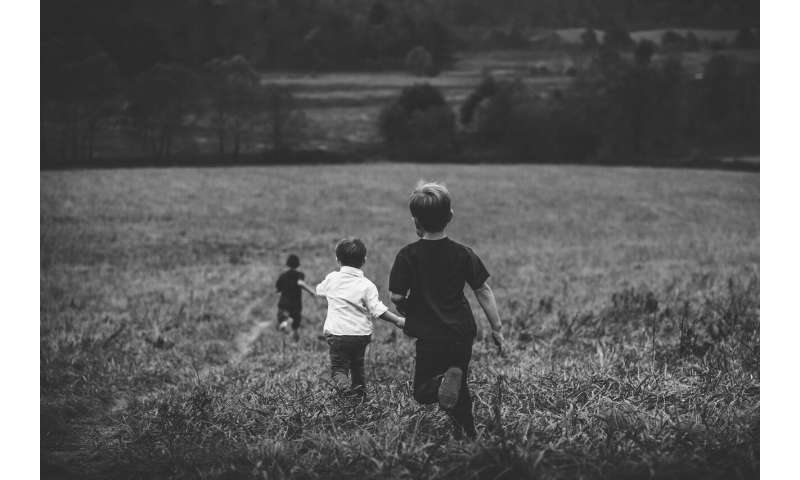
Government ministers are being urged by an expert panel to prioritize children’s play and socializing over formal learning when lifting the UK’s coronavirus lockdown.
Children must be given ample opportunity for play and interaction with their peers as a priority in order to avert a nationwide mental health crisis, recommends the panel led by child mental health experts at the University of Sussex, University of Cambridge and University of Reading.
The panel of psychologists, psychiatrists and other experts have written to senior ministers strongly recommending that small gatherings of children for outdoor play should be permitted as soon as it is safe to do so as one the first steps in loosening the lockdown.
Re-opened schools should ensure that all children have opportunity to play and interact with their peers each day and throughout the school day, the panel recommends.
Sam Cartwright-Hatton, Professor of Clinical Child Psychology at the University of Sussex, said:
“All the research indicates that children’s emotional health is suffering in the lockdown and it seems likely that this suffering will, in many cases, continue into the long term. We are urging ministers and policymakers ensure that children are afforded substantial, and if possible enhanced, access to high quality play opportunities as soon as possible.”
Dr. Jenny Gibson, Senior Lecturer in Psychology and Education at the Faculty of Education, University of Cambridge, said:
“It’s easy to dismiss play as unimportant, but for children, playing with friends and classmates has a very significant impact on their social development. Critically, it is an important way of working through emotions and will therefore be one of the principal ways in which they cope with the isolating effects of the lockdown. For that reason it’s important that whatever steps are taken to ease social distancing restrictions, children are given time and space to play with friends. My own research suggests that social play skills are directly related both to children’s social-emotional adjustment and their academic achievement, so it is a concern that this is something that has been missing from many children’s lives for a number of weeks.”
The authors formed their recommendations supported by a review of relevant academic literature which confirmed the harmful impact of isolation on children and the alleviating benefits of play.
A study examining parental reports of their children’s mental health following social distancing measures in countries affected by previous pandemics found children who experienced quarantine or social isolation measures were five times more likely to require mental health service input than those who did not.
The therapeutic benefits of play on child mental health have been shown in studies of children in war zones and survivors of Romanian orphanages.
Recent polling data shows that around two-thirds of primary school children are currently feeling lonely—an increase of approximately 50% compared to normal levels.
Dr. Kathryn Lester, Senior Lecturer in Developmental Psychology at the University of Sussex, said:
“Although many children may be spending more time playing during lockdown than usual, they may currently have a play deficit because the physical and social restrictions in place deprive them of the chance to play with their peers. We know that play with peers is critically important for children’s development. Play has substantial benefits for children’s emotional wellbeing especially during periods of anxiety and stress. It provides a sense of control, it helps children make sense of things they might be struggling to understand, and importantly it makes children happy.”
Helen Dodd, Professor of Child Psychology at the University of Reading, said:
Source: Read Full Article
